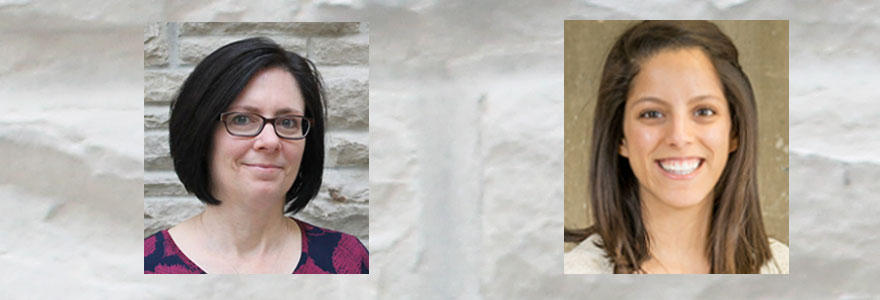News and Updates
Contact
Faculty of Social Science
Social Science Centre
Room 9438
Western University
T. 519-661-2053
F. 519-661-3868
E. social-science@uwo.ca
Sociology professor and student trace the lasting impact of experiences
June 21, 2018
Story by Rob Rombouts, with notes from Aniruddho Chokroborty-Hoque
“Our lives at any given time are the result of an accumulation of experiences,” said Andrea Willson, Associate Professor in the Department of Sociology.
For Willson, this is true in multiple ways.
For most of her career, Willson has researched social determinants of health, or the factors in a person’s life that could impact their health. Factors like where someone lives, their education, income and quality of housing are strong predictors of health.
Willson has looked at the long-term effects of early life disadvantages, including whether the negative factors faced by parents could impact their children, and whether improvements through someone’s life would change the impact of the earlier factors.
“Health is a very salient outcome of inequality – it has been referred to by others in the area as how inequality gets under the skin,” said Willson. “You can see manifestations of inequality in individual health.”
Working with Kim Shuey, Associate Professor in Sociology, Willson used data from a long running longitudinal study, which has been collecting data on the same families since 1968.
“We found that moving out of poverty in childhood lowers the risk of experiencing health problems in midlife. Upward mobility in adulthood did not lessen this risk,” said Willson. “Our last paper looks at work disability – having a health problem that makes it difficult to work – and how that affects not only the individual’s life chances but their children’s. The cycle can be repeated and in fact we find there is a high likelihood that it will be, regardless of upward mobility.”
Willson is also focused on training the next generation of researchers.
Loanna Heidinger is a PhD candidate in the Department of Sociology at Western. She completed her MA at Western, focusing on the impact of early childhood neighbourhood disadvantage, specifically perceived neighbourhood cohesion and neighbourhood disorder, on mental health in early adulthood.
She was interested in working with Willson to continue her research, to examine the long-term effects of childhood disadvantage and adversity on well-being in adulthood.
“Andrea focuses on the longitudinal and intergenerational impact of experiences of childhood poverty on adult health,” said Heidinger. “Her work aligns very nicely with my overall research interests on the long-term impact of experiences of cumulative adversity during childhood on adulthood.”
Under Willson’s supervision, Heidinger is examining how the cumulative effects of a difficult childhood – bullying, parental divorce, and crime-ridden neighbourhoods, for example – impact adult mental health and educational attainment.
Childhood is a critical time for development. Physical, mental and emotional forces shape and sculpt personalities, including how people respond to life around them.
“Most studies usually focus on a singular, traumatic experience like parental divorce, not on chronic and ongoing adverse childhood experiences,” Willson says.
But, childhood adversities, especially in poor families, are often inter-related. Poor households, as an example, are more likely to be located in unsafe neighbourhoods, creating a compounding effect for disadvantaged youth.
"Disadvantages and inequality in childhood have persistent and detrimental impacts that last a lifetime," Heidinger says. "Overall, findings reveal that individuals who experience adversities during childhood are more likely to experience poor mental health and less likely to graduate from high school or college, compared to individuals who did not experience adversities."
She stresses that current research should consider how the combined effects of multiple childhood adversities could begin and maintain economic and health problems throughout one’s life.
Heidinger has not just benefitted from her work with Willson, but has drawn on the expertise of other faculty in the department. “Our department has among the best training in quantitative research methods in Canada,” said Willson. “And Loanna has also had opportunities to increase her knowledge of statistical techniques at international workshops.”
“There is a big push to increase educational opportunities for adults with lower socioeconomic status,” Willson says. “Unfortunately, our studies point to it being too late. We should not wait until adulthood to mitigate their problems.”

